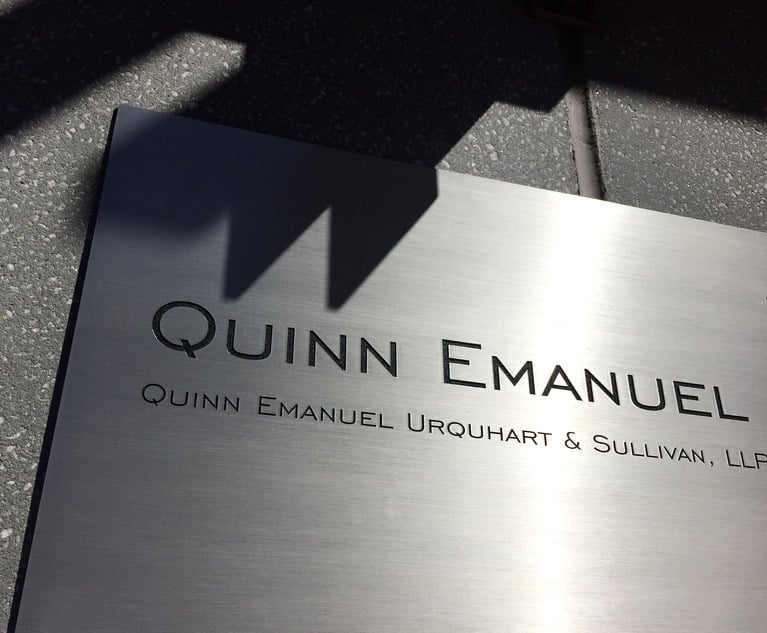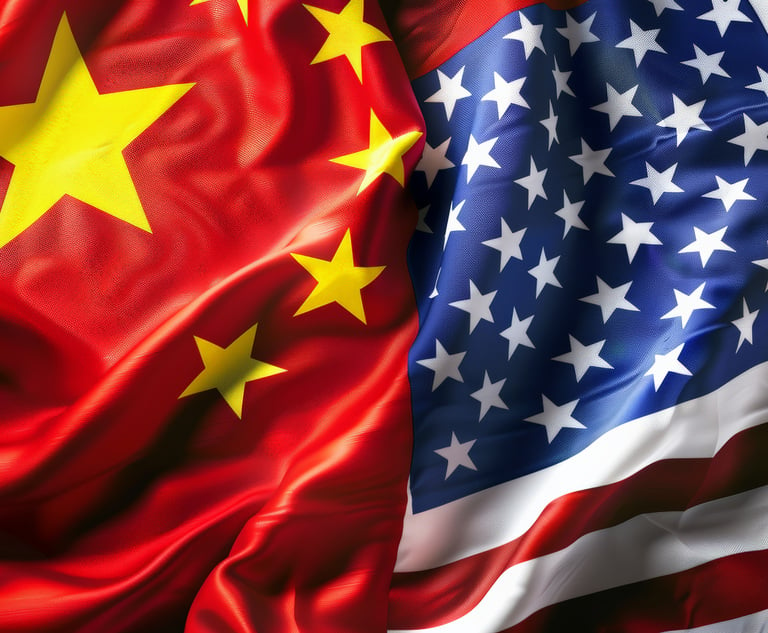UK M&A activity plummets as Brexit effect begins to take hold
Total deal value falls 66% on Q2 after quietest quarter for UK M&A activity since 2012
October 05, 2018 at 05:00 AM
6 minute read
UK M&A volumes plummeted by a third during Q3 after the quietest quarter for deal activity since 2012, according to the latest figures from Mergermarket.
The total number of UK deals fell 32% on Q2, dropping from 405 to 272, and 37% on Q3 last year, when there were 429 M&A deals.
At the same time, the combined value of those UK deals dropped by two thirds on Q2, down 66% from $104.8bn (£80.7bn) to just $35.5bn (£27.3bn).
However, the steep drop comes after Q2 saw the highest total value of UK M&A since 2015. For the year to date, total UK deal values now stand at $200.8bn (£154.6bn), the best Q1-Q3 figure since 2015.
City M&A partners cited continued market uncertainty around Brexit as a key factor behind the Q3 slowdown, as well as a lack of UK assets considered desirable by international investors.
 Clifford Chance (CC) global corporate head Guy Norman (pictured) said: "Global M&A goes in cycles, and the real question is whether we are seeing the beginning of a downturn or just a temporary pause. Uncertainties around the wilder geopolitical landscape, as well as Brexit closer to home, appear to be growing. It may simply be a pause for breath, but it feels like it may be the start of a more prolonged softening in the market."
Clifford Chance (CC) global corporate head Guy Norman (pictured) said: "Global M&A goes in cycles, and the real question is whether we are seeing the beginning of a downturn or just a temporary pause. Uncertainties around the wilder geopolitical landscape, as well as Brexit closer to home, appear to be growing. It may simply be a pause for breath, but it feels like it may be the start of a more prolonged softening in the market."
DLA Piper global M&A co-head Jon Kenworthy commented: "In the immediate aftermath of the Brexit vote, most potential buyers quickly reached the view that any certainty around the terms of Brexit was so far away that they couldn't wait and they just decided to get on with it. The closer we get to the end of March without clarity, the easier it is for people to say: 'I'm just going to wait a little while and see how this plays out.' If you look towards Q1 2019, that lack of clarity could become a real overhang in the market."
On a global basis, deal values fell by 40% between the second and third quarters of the year against a 26% fall in global deal volumes.
Global deal values dropped from Q2′s total of $1.09trn (£837bn) to $649bn (£498bn), the lowest total quarterly value since Q1 2016, while the Q3 global deal volume figure of 3,634 is the lowest quarterly result since Q2 2013.
While Q2 saw a brief spike in deal values, the underlying volumes suggest that a long-predicted market slowdown is now beginning to take hold.
Norman added: "There is a lot of heat and excitement surrounding mega-deals, but it's important to note that volumes are down and the big-dollar deals are masking the underlying reality that deal flows are lower. The apparent M&A boom is largely a product of a number of mega-deals rather than an improved market overall.
"Regulatory restrictions are a challenge – people are increasingly wary of the antitrust and political obstacles their transactions may face and are investing more time up front to assess possible hurdles and mitigation strategies. Deals which appear high risk in this context can often be abandoned before they begin."
 DLA Piper global co-chair of corporate Bob Bishop (pictured) commented: "I'm expecting a drop in activity while the market waits to see what form Brexit will take, and who the winners and losers might be. If you're dependent on labour or imports from the EU, things could well get harder. If you're on the other side of the equation, benefiting from significant overseas business, further pressure on sterling could be beneficial."
DLA Piper global co-chair of corporate Bob Bishop (pictured) commented: "I'm expecting a drop in activity while the market waits to see what form Brexit will take, and who the winners and losers might be. If you're dependent on labour or imports from the EU, things could well get harder. If you're on the other side of the equation, benefiting from significant overseas business, further pressure on sterling could be beneficial."
Of the top-performing firms for global M&A for Q1-Q3, Freshfields Bruckhaus Deringer is the only UK firm in the top five by value, placing second only to Davis Polk & Wardwell, which advised on 99 deals worth a total of $360bn (£277bn) during the first nine months of the year.
Freshfields, which moved up to second place from eighth last year, worked on 154 global deals with a combined value of $353bn (£271bn), with Latham & Watkins, Skadden Arps Slate Meagher & Flom and Cleary Gottlieb Steen & Hamilton rounding out the top five. Linklaters ranked seventh, with roles on 137 deals worth a total of $295bn (£226bn).
Kirkland & Ellis, meanwhile bumped DLA Piper off its traditional top spot for global deal volumes after advising on 416 deals during Q1-Q3. The US firm placed 15th in the value rankings, down from second place this time last year.
Magic circle firms dominated the top five spots in terms of deal value for Europe and the UK. Freshfields topped both rankings after advising on deals worth a total of $307bn (£236bn) in Europe and $132bn (£102bn) in the UK. Linklaters placed second in the Europe rankings, followed by Davis Polk, while Slaughter and May came in at fourth and CC in fifth.
Herbert Smith Freehills (HSF) was second behind Freshfields in the UK rankings, advising on deals worth a total of $114.2bn (£87.9bn), followed by Slaughters, CC and Linklaters.
Major recent mandates for HSF have included advising Sky on the £26bn takeover offer from Comcast, the competing bid from 21st Century Fox and potential 'chain principle' bid by Disney, as well as a role for the Weir Group on its $1.3bn acquisition of ESCO Corporation.
 HSF global M&A head Gavin Davies (pictured) said: "We're seeing consolidation across a number of sectors – technological disruption continues to drive some transformational deals, as well as more ambitious cross-sector moves.
HSF global M&A head Gavin Davies (pictured) said: "We're seeing consolidation across a number of sectors – technological disruption continues to drive some transformational deals, as well as more ambitious cross-sector moves.
"Clients are moving quickly in some cases to secure opportunities. But we are also seeing challenges for deals once agreed – they are being tested by regulators, by shareholders and by politics. So there's a particular focus for the lawyers on the provisions in the documents governing the period from signing to closing."
Key mandates for CC and Slaughters during Q3 included the $5.6bn (£4.3bn) purchase of UK insurance broker Jardine Lloyd Thompson Group by US competitor Marsh & McLennan Companies and the sale of coffee chain Costa to global drinks producer Coca-Cola for £3.9bn.
DLA Piper worked on the largest number of European deals at 242, while runner-up CMS worked on the most UK deals at 92.
CC's Norman sounded a more positive note for the future, adding: "Despite the headwinds, momentum for M&A is still supported by a number of drivers, including the need for consolidation in multiple sectors and an increasing appetite among many of our clients in acquiring technology and data-driven assets, which are challenging to develop organically. This relatively recent phenomenon will be one of the factors supporting M&A activity in the short to medium term."
This content has been archived. It is available through our partners, LexisNexis® and Bloomberg Law.
To view this content, please continue to their sites.
Not a Lexis Subscriber?
Subscribe Now
Not a Bloomberg Law Subscriber?
Subscribe Now
NOT FOR REPRINT
© 2025 ALM Global, LLC, All Rights Reserved. Request academic re-use from www.copyright.com. All other uses, submit a request to [email protected]. For more information visit Asset & Logo Licensing.
You Might Like
View All
X Ordered to Release Data by German Court Amid Election Interference Concerns

Quinn Emanuel's Hamburg Managing Partner and Four-Lawyer Team Jump to Willkie Farr

Trump ICC Sanctions Condemned as ‘Brazen Attack’ on International Law

U.S.- China Trade War: Lawyers Label WTO Dispute Pointless, Clients Have Their Hands Tied
Trending Stories
- 1States Accuse Trump of Thwarting Court's Funding Restoration Order
- 2Microsoft Becomes Latest Tech Company to Face Claims of Stealing Marketing Commissions From Influencers
- 3Coral Gables Attorney Busted for Stalking Lawyer
- 4Trump's DOJ Delays Releasing Jan. 6 FBI Agents List Under Consent Order
- 5Securities Report Says That 2024 Settlements Passed a Total of $5.2B
Who Got The Work
J. Brugh Lower of Gibbons has entered an appearance for industrial equipment supplier Devco Corporation in a pending trademark infringement lawsuit. The suit, accusing the defendant of selling knock-off Graco products, was filed Dec. 18 in New Jersey District Court by Rivkin Radler on behalf of Graco Inc. and Graco Minnesota. The case, assigned to U.S. District Judge Zahid N. Quraishi, is 3:24-cv-11294, Graco Inc. et al v. Devco Corporation.
Who Got The Work
Rebecca Maller-Stein and Kent A. Yalowitz of Arnold & Porter Kaye Scholer have entered their appearances for Hanaco Venture Capital and its executives, Lior Prosor and David Frankel, in a pending securities lawsuit. The action, filed on Dec. 24 in New York Southern District Court by Zell, Aron & Co. on behalf of Goldeneye Advisors, accuses the defendants of negligently and fraudulently managing the plaintiff's $1 million investment. The case, assigned to U.S. District Judge Vernon S. Broderick, is 1:24-cv-09918, Goldeneye Advisors, LLC v. Hanaco Venture Capital, Ltd. et al.
Who Got The Work
Attorneys from A&O Shearman has stepped in as defense counsel for Toronto-Dominion Bank and other defendants in a pending securities class action. The suit, filed Dec. 11 in New York Southern District Court by Bleichmar Fonti & Auld, accuses the defendants of concealing the bank's 'pervasive' deficiencies in regards to its compliance with the Bank Secrecy Act and the quality of its anti-money laundering controls. The case, assigned to U.S. District Judge Arun Subramanian, is 1:24-cv-09445, Gonzalez v. The Toronto-Dominion Bank et al.
Who Got The Work
Crown Castle International, a Pennsylvania company providing shared communications infrastructure, has turned to Luke D. Wolf of Gordon Rees Scully Mansukhani to fend off a pending breach-of-contract lawsuit. The court action, filed Nov. 25 in Michigan Eastern District Court by Hooper Hathaway PC on behalf of The Town Residences LLC, accuses Crown Castle of failing to transfer approximately $30,000 in utility payments from T-Mobile in breach of a roof-top lease and assignment agreement. The case, assigned to U.S. District Judge Susan K. Declercq, is 2:24-cv-13131, The Town Residences LLC v. T-Mobile US, Inc. et al.
Who Got The Work
Wilfred P. Coronato and Daniel M. Schwartz of McCarter & English have stepped in as defense counsel to Electrolux Home Products Inc. in a pending product liability lawsuit. The court action, filed Nov. 26 in New York Eastern District Court by Poulos Lopiccolo PC and Nagel Rice LLP on behalf of David Stern, alleges that the defendant's refrigerators’ drawers and shelving repeatedly break and fall apart within months after purchase. The case, assigned to U.S. District Judge Joan M. Azrack, is 2:24-cv-08204, Stern v. Electrolux Home Products, Inc.
Featured Firms
Law Offices of Gary Martin Hays & Associates, P.C.
(470) 294-1674
Law Offices of Mark E. Salomone
(857) 444-6468
Smith & Hassler
(713) 739-1250









